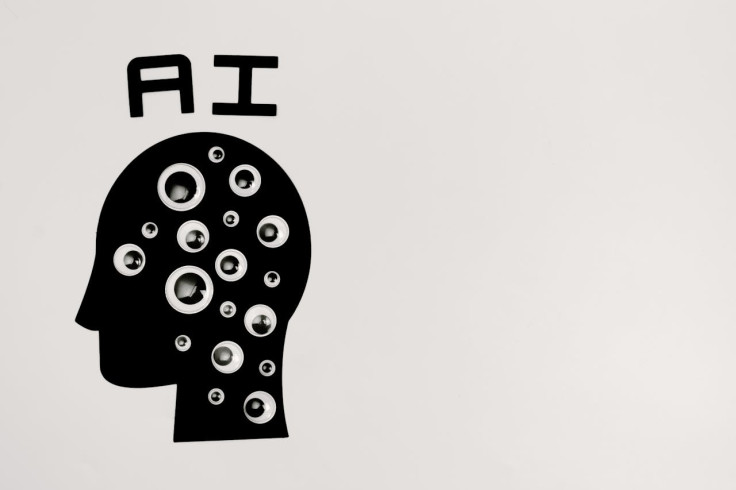AI Takeover: 10 Jobs Humans Could Lose To Automation In The Next Three Years
From self-driving cars to warehouse robots, AI redefines jobs

Artificial intelligence (AI) is fundamentally changing the nature of work as technology tightens its grip on various industries. AI automation is expected to significantly impact or replace several jobs in the next three years.
According to the World Economic Forum's 2023 Future of Jobs Report, lacking AI skills could limit your earning potential and job prospects. The report warns that more than 75 percent of companies are poised to adopt AI and other technologies within the next five years. This widespread adoption could lead to a major transformation in how we work.
To prepare for the evolving job market, let's explore ten positions likely to be significantly impacted by AI in the next three years. Understanding these at-risk roles can empower us to develop new skills and adapt to future career opportunities.
Ten Jobs Likely to Be Automated by AI
Retail Cashiers
AI-powered self-checkout systems and cashier-less stores are rapidly automating retail cashier roles, streamlining the checkout process and reducing the need for human cashiers. Customers can scan and pay for their items independently, with AI systems seamlessly handling transaction processing and inventory management in the background.
A report by Trendonomist suggests the demand for human cashiers is predicted to decline significantly within the next three years as these technologies proliferate.
Telemarketers
AI chatbots and voice recognition automate customer service and sales, making telemarketing roles more vulnerable. Automated systems come in handy for performing a wide range of tasks, such as processing orders, answering inquiries, and even interacting with customers without human intervention.
AI chatbots and voice recognition eliminate the need for traditional telemarketers to make cold calls, directly diminishing their role in customer interactions. As companies embrace these AI-powered solutions, the telemarketing workforce is likely to shrink in the coming years.
Data Entry Clerks
Data entry clerks perform various tasks, including inputting information into spreadsheets or databases. However, AI algorithms are streamlining data entry by swiftly and precisely extracting information and feeding it into digital systems, rendering many manual data entry clerk roles redundant in the coming years.
Fast Food Workers
Fast food embraces AI automation, with self-service kiosks and robot cooks revamping order processing and prep for peak efficiency. AI streamlines fast-food operations with digital ordering kiosks and robotic cooks, minimising counter staff and ensuring consistent, precise food prep.
The rise of AI in fast food, with chains like Chipotle, White Castle, and Sweetgreen already embracing robotic cooks and self-service kiosks, suggests a future with fewer human workers serving customers.
Bank Tellers
Online banking's surge has diminished the need for in-person services, putting traditional bank teller roles at risk. AI chatbots and ATMs, equipped to handle routine transactions, eliminate the need for human tellers, making them prime candidates for automation.
Assembly Line Workers
AI and robotics are rapidly transforming manufacturing, with automated systems replacing assembly line workers in repetitive tasks, emphasising speed, precision, and consistency. AI-powered robots on assembly lines at manufacturers like Mercedes-Benz assemble products, inspect for defects, and package for shipment, boosting efficiency and lowering labour costs.
Drivers
Safety concerns remain a hurdle for self-driving vehicles, as evidenced by recent incidents, such as a Tesla owner narrowly avoiding a collision while using the Full Self-Driving (FSD) mode. Still, self-driving vehicles threaten to disrupt the transportation sector, potentially replacing human drivers in taxis, trucks, and delivery services.
Piloting themselves on roads and adhering to traffic laws, autonomous vehicles powered by companies like Nvidia and Tesla promise to transport goods and passengers without human intervention. As this technology matures and regulatory hurdles are cleared, particularly in wealthier nations, the demand for human drivers will likely significantly decrease.
Receptionists
AI virtual assistants and chatbots are taking over receptionist duties, which include handling calls, scheduling appointments, and greeting visitors without a physical body. Never needing a break, AI virtual assistants are steadily replacing receptionists, managing tasks 24/7 and propelling the intelligent virtual assistant market towards a projected $45.83 billion by 2028.
As businesses prioritise efficiency and customer service, the traditional receptionist role seems destined for extinction.
Customer Service Representatives
AI-powered chatbots are transforming customer service by offering 24/7 availability, addressing inquiries, resolving issues, and instantly providing information. This enhances customer experience by ensuring constant accessibility and responsiveness.
Businesses' burgeoning adoption of AI-powered customer service solutions fosters streamlined operations, elevates service quality, and consequently diminishes the reliance on human interaction. This paradigm shift towards automation presents numerous advantages, including cost reduction and enhanced efficiency.
Warehouse Workers
AI robots are revolutionising warehouses, automating tasks from inventory to shipping with 24/7 efficiency. This swift and precise automation streamlines operations and cuts labour costs for warehouse operators.
Autonomous robots can perform several tasks, such as warehouse navigation, item location, and goods transport. As robotics powered by AI flourishes, the logistics industry is likely to see a decline in human warehouse worker demand within the next three years, mirroring Amazon's 2023 experiment with warehouse robots.
Conclusion
AI automation offers efficiency and cost reduction benefits but necessitates adaptation for individuals and businesses. A culture of continuous learning and skill development is crucial to thrive in the AI era. So, prioritise reskilling and upskilling initiatives to equip yourself with the competencies needed to excel in the AI-driven economy.
© Copyright IBTimes 2025. All rights reserved.






















